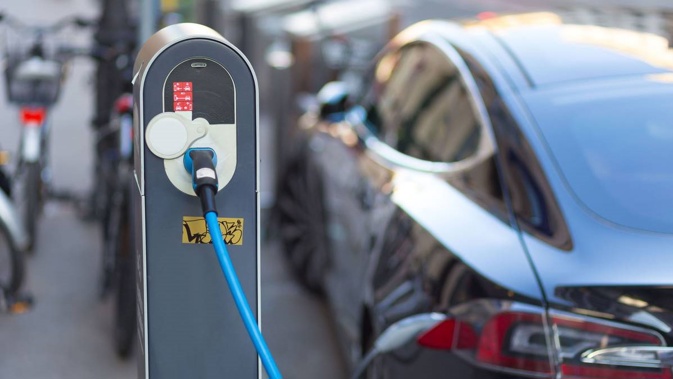
Drivers who buy new cars from July 1 will be able to get taxpayer funded rebates of almost $8700 a new electric or plug-in hybrid car, and about $3,500 for used cars.
But those who buy petrol vehicles will cop the cost under the Government's plan announced today – from January 2022, buyers of new petrol cars will have to pay a fee of up to $5875 while those buying newly imported used cars face fees of up to $2875.
That fee would be based on emissions – for it example, it would add $2,900 to the cost of a new Toyota Hilux, $1230 to a Kia Sportage, and $830 for a Nissan Navara.
Petrol cars with lower emissions – such as a Toyota Rav 4 or Suzuki Vitara – would not face fees.
The measures were announced by Transport Minister Michael Wood and Climate Change Minister James Shaw today, and are a re-jig of the controversial 'feebates' scheme which was scuttled by NZ First last term.
It offers rebates of up to $8,625 for a new electric car and up to $5750 for a plug-in hybrid car – but will not be given on cars that cost $80,000 or more. Cars had to have at least a three-start safety rating to be eligible.
Rebates of up to $3,450 will be given to those who buy used electric cars and $2,300 for plug-in hybrids. From January, smaller rebates will also be offered to buyers of other low emission cars.
Fees on higher emitting vehicles will start from 1 January 2022.
Wood said they would not apply to cars which were already in the country, which meant low-income families who relied on cheaper second-hand cars would still be able to get them.
Wood said New Zealand's uptake of electric vehicles was well behind that of most other countries:
"Our monthly registrations of EVs are around half the global average and sales are well below the 50 per cent of monthly sales seen in some European countries."
Wood said a discount on low emission vehicles funded by a fee on higher emitting vehicles was the best way to persuade people to invest in electric or hybrid cars.
"It's a common policy overseas, a recommendation of both the Climate Commission and the Productivity Commission, and is supported by the likes of the Motor Industry Association – it's time to get moving with it."
The funding was set aside in the Budget and is part of the Government's efforts to push down transport emissions, which currently make up almost half of all New Zealand's emissions.
A spokesman for Wood said the scheme was designed to be fiscally neutral, so the fees covered the cost of the rebates. A Crown loan would cover the cost of rebates in the first six months until the fee began.
Last week's Climate Commission report recommended banning imports of petrol and diesel cars by 2035 at the latest, and a boost in the proportion of biofuels used in New Zealand.
The inaccessibility of electric charging stations has been put forward as one obstacle to increased use in electric cars - Wood said there were already electric charging stations every 75 km along most state highways, and the Low Emission Transport Fund was getting a boost to add more, as well as biofuels capacity.
The Government was also consulting on a Sustainable Biofuels Mandate, which was aimed at further developing New Zealand's biofuels industry and reducing emissions from cars, trucks, ships and planes by 1.3 tonnes until 2025, while zero emission policies were worked through.
An electric vehicles advisory group would be set up soon to advise the Government on policy.
Take your Radio, Podcasts and Music with you









